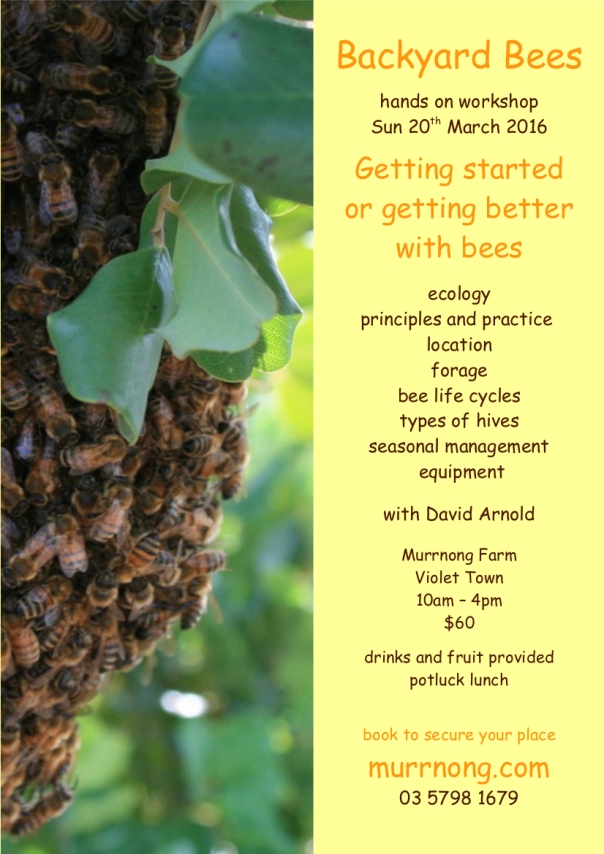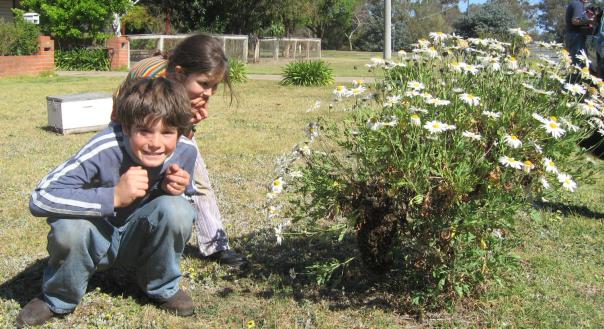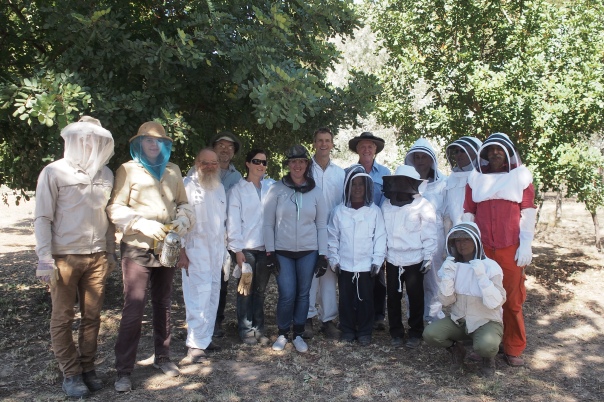
Keeping even just one hive of bees in your backyard can give a big surplus of honey, do wonderful things for the pollination and productivity of your garden, and can also help to make sure we have plenty of healthy bees for the future. A well placed and well managed bee hive, with the flight path out of people’s way, can be nothing but a positive. The first your neighbors might know about the hive you have had for the last six months could be when you give them a jar of honey. 
Felix and Grace Arnold excited and a little nervous about this bee swarm that their Dad was about to collect from a little bush in Violet Town in 2006
Bees are under stress around the world, bee numbers are down, the Varroa mite will probably get to Australia one day, and the neonicotinoid pesticides, so toxic to bees, continue to be used. Species diversity in large scale agricultural regions is now too low to feed bees through the year. In the apple and pear orchards of south west China, bees have been eradicated by pesticide use and habitat loss, and people have to do pollination (the free work of bees) by hand, with a feather and little bags of pollen. In Australia, beekeepers are paid to truck their bees in to pollinate horticultural crops.
There is species diversity in towns and home gardens, though. These are now an important bee forage resource. Backyard bees mostly feed from a different forage resource to commercially kept bees. The garden plants benefit, and we get the honey. Towns can provide a surplus of bees to support the surrounding agriculture or horticulture.
Backyard bee keepers often collect ‘wild’ bee swarms, and so are potentially working with a broader range of genetics in bees than is possible when all the bee queens are commercially bred. This is important to allow for continual evolution and adaptation among bees.
In Australia bees kept in backyards, or on rooftops in the city, generally have less exposure to insecticides than when bees are used for pollination in agriculture.
With their smaller scale, less commercial pressure, and hives kept mostly in one place, backyard bee keepers have opportunities to experiment and innovate with their bee keeping practices. All of this can contribute to a bee keeping culture of continuous improvement, and a healthy increase in bee numbers.
Getting Started or Getting Better with Bees with David Arnold, Sun 20th March 2016, Violet Town, $60 murrnong.com
murrnong@gmail.com, ph. 5798 1679
Ready for hive inspections at the Murrnong March 2015 Backyard Bees workshop.